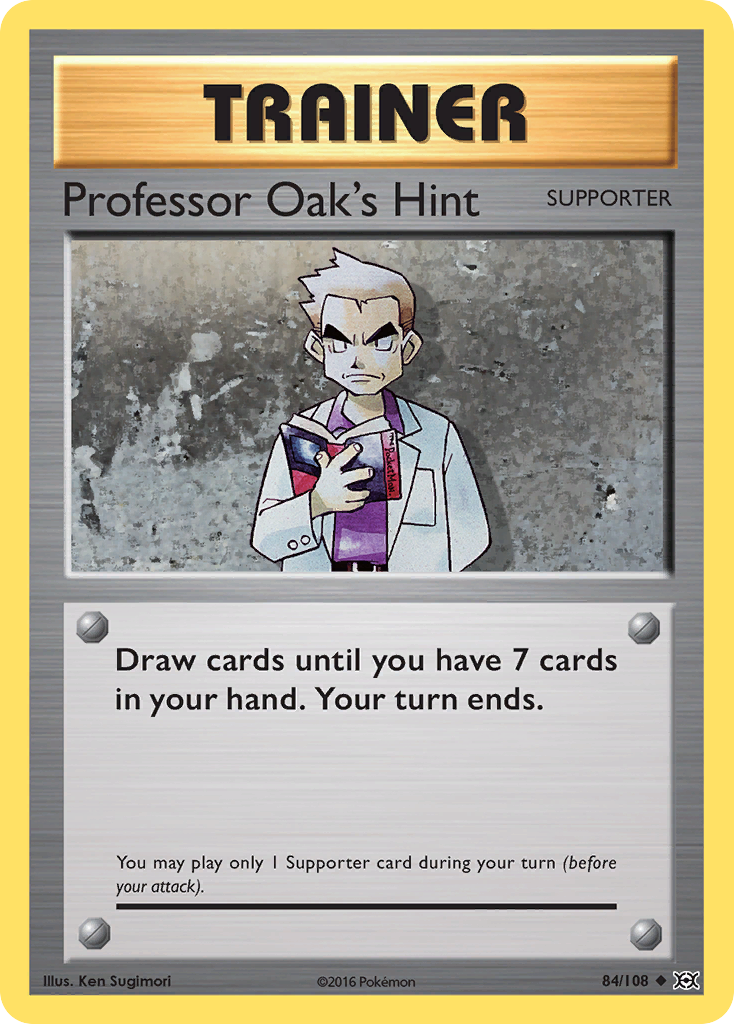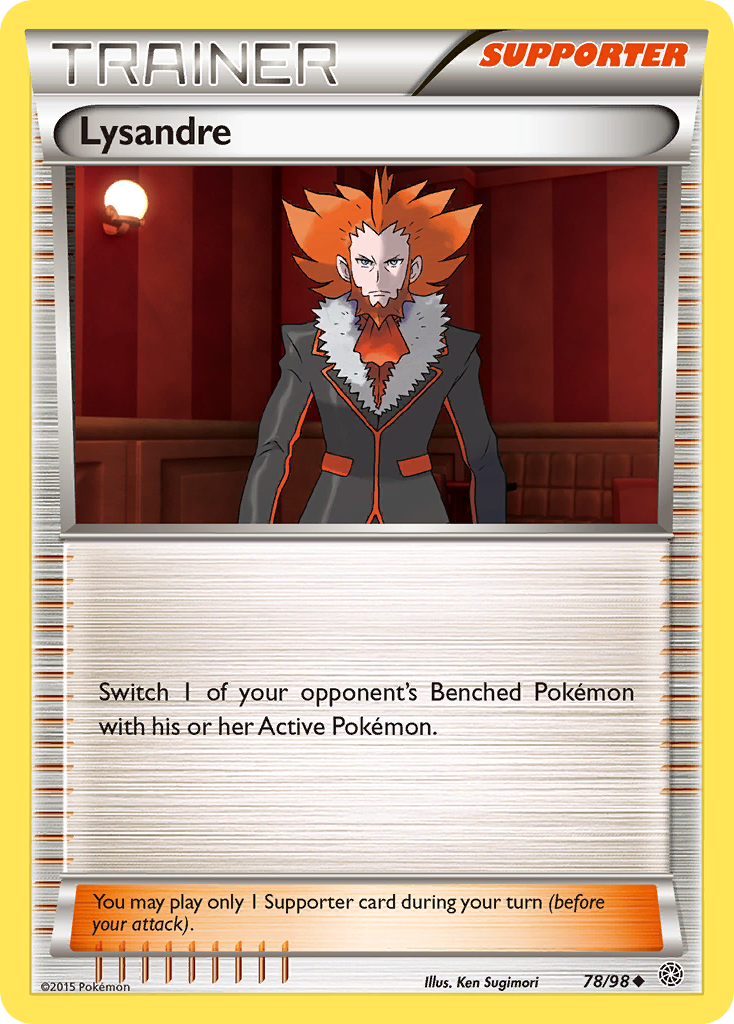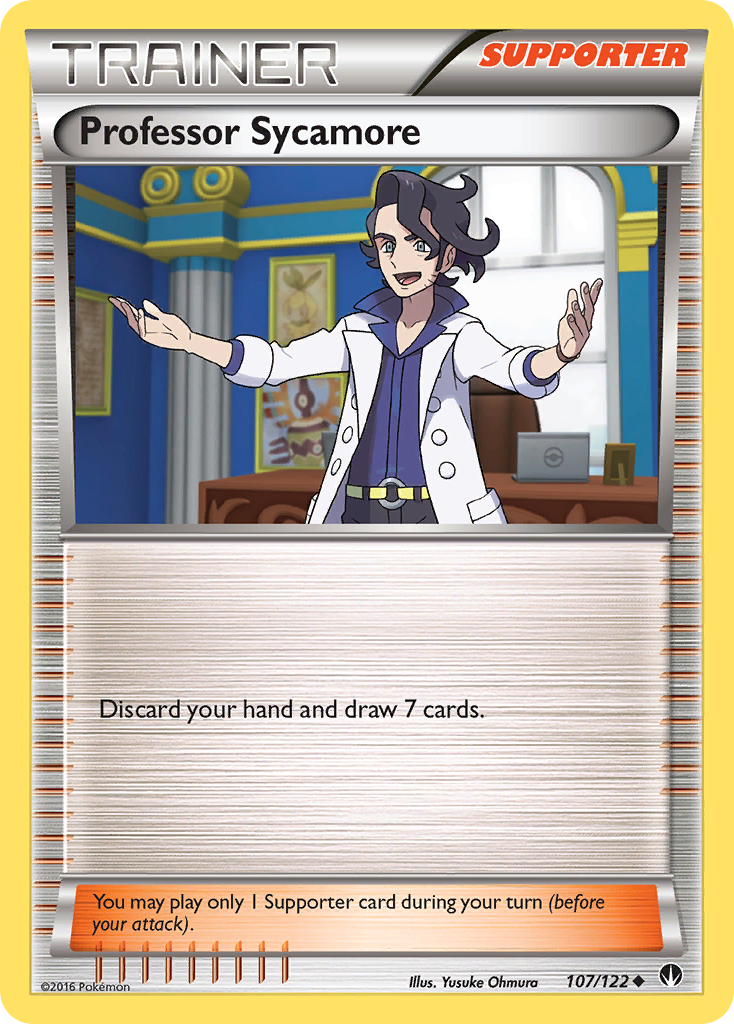Searching the Premise — Creativity in an Unskillful Format and Teaching Novices
Hello everyone! Alex back at you with another offbeat article with a few lists sprinkled in here and there. To keep things a little bit fresh, this article is going to talk about some things that hasn't really been talked about in the community yet, as well as give you a little bit of a taste as to some cool things we saw in the Utah Regional Championships.
Growth in the community has been a hot topic for quite some time now. With the way the Pokemon Company International is dealing with things, and the higher prize payout of large events, Pokemon and the community it encompasses has never been larger. As such, many debates have been sparked about where the correct destination is. Where do we go from here now that we have the ball rolling? That sort of thing is better answered for another day, but for now, we'll dive into another topic that has to deal with growth, and that's teaching new players how to play the game.
Trust me, I can hear your groan already. "But Alex! I came here to look at some fire lists and hot techs! I don't have any friends to teach anyway!" Zingers aside, yes, I know that this might not have been what you were looking for when you signed on to PokeBeach today to catch the latest article, but I believe that it's an important part of the scene that is very often overlooked.
I play a lot of board games and card games. My dad is a very good Cribbage player, and even plays in large tournaments himself, just as I play in these Pokemon tournament things. By playing these games, I've had the great opportunity and honor to teach people how much fun they can have without the use of electronics.
But when I learn a new game, I often find myself very confused as to the rules, the strategy, and the way to win the game! No offense to my friends, but they aren't the best teachers out there. People always want to dive right in to the strategy and want to show people cool tips and tricks. I've seen a lot of people at league start diving right into the metagame of Expanded to a new player who only wants to try out their theme deck and learn a little bit more about the scene. These people aren't going to care about how Night March was everywhere last year, and how their modified theme deck is worthless in the current meta. Every time this happens, I hardly ever see those people again. I'l' dive more into this later, but hopefully you can kind of see what I'm talking about here. It's an important point, and hopefully through these tips and tricks, you can teach your siblings, parents, significant other, or new player at your league to play this great game that we all love without confusing them and turning them off.
Teaching New Players Pokemon
Outside of the basic rules and how to play the game, there are a few things to remember when teaching a new player. These are less how to teach someone to play the game and more like guidelines on to how you should approach the teaching of Pokemon to a new player.
Prepare
You want to make sure you have everything laid out properly before you teach someone. I've learned games from people on the fly that have not prepared the board at all. While they set up, they try to show me all the parts of the game, what different pieces do, and how "this piece totally kills this piece but only if you can get it under this situation." The same sort of thing applies in Pokemon. You don't want to dive right in to how Vespiquen totally destroys the Quad Lapras matchup without setting up some sort of situation first.
My recommendation is to make/build/buy starter decks first. You want to avoid giving them too heavy of a combination before they understand what they're doing. Starter decks, while boring and slow, are great ways to understand the basics of the game. Here, they learn about attaching Energy, making sure they have enough Energy to attack, and about calculating damage output and HP remaining. In fact, I highly suggest doing theme deck battles with your friends that are good and know how to play. I personally can't do this too often since none of my friends are any good, but in theory, it helps your competitive game as well. It helps you with resource management, conserving Pokemon, and managing Bench space.
This is already a total tangent, but hear me out for a second. If you're looking for alternative ways to improve your game, play theme decks with four copies of Lysandre in them. You'll be surprised at how much your resource management and in-game skill improves. It's not anything to really write home about, but I suggest it. If there is any way that you can improve your game, you should take it, right?
A Clear Goal or Win Condition
Honestly, this should be the first thing you start with no matter what you're playing. The whole point of a game is to accomplish a goal. If you've never thought about it from that angle, take the time to do so right now. Baseball? Score more runs than the opponent. League of Legends? Destroy the opposing Nexus. Life? On second thought, still waiting to hear back on that one.
If you didn't know, the goal of Pokemon is to Knock Out six of your opponent's Pokemon. Even though there are other win conditions, you want to give your pupil the most basic of ways to win the game. It will better help them understand what is required of them. You don't want to hand them Durant and say "figure it out stupid." You should let them know about decking out and benching out, but I would say a good portion of games are won by taking six Prizes.
In fact, I would be curious to find out what the exact number is. Personally, I don't win many games by taking all six Prizes, since I don't win many games at all but most people seem to win by this manner. If I were to give a rough estimate, I would say probably 85% of games are decided by Prize count. Let me know what you think, and if someone is savvy enough to do the math themselves, or ask enough people, then also let me know, since I obviously don't.
Different Types of Cards
The last thing I like to do before going over any aspect of the game itself is talk about the many different types of cards there are. Obviously the game is divided up into three major sections of cards: Pokemon, Trainers, and Energy. From there, each sections is broken up into further sections: Evolutions, Basics, Supporters, Items, Stadiums, Special Energy and Basic Energy. Even then, there are more breakdowns in the form of Megas, BREAKs, Pokemon-GX, Pokemon-EX, as well as regular Items compared to Tools and ACE SPECs. If your friend understands what each of the cards do at their core, they won't be surprised at what that card does when they draw them.
Also as a friendly reminder, Pokemon is very user friendly. It tells you what you can and can't do with a card on the card itself. If you didn't know, every Supporter since the dawn of time literally tells you that you can only use one per turn. An overload of information about each card can be kind of crazy to a new player, so help them out by reassuring them that if they ever forget a ruling of a type of card, it will say it on the card itself.
Obviously there are a few exceptions to this, but that's just it, there are only a few. Every Trainer card says what it can and can't do, so as long as you tell them you can only evolve a Pokemon when it's been in play for a turn, they can only attach one Energy per turn, and their Bench size is limited to five, it'll be smooth sailing for getting your girlfriend into the game.
As one last reminder on this subject, show them the parts of the card. Do you remember way back in Base Set (or even now, I haven't read a starter rule book in a while) where it shows you the parts of a card? Stuff like HP, attack cost, damage, and that sort of thing? It may seem like a silly little thing to go over, but to a new player, that's everything.
Don't Talk About Meta or Strategy
This is by far the biggest tip I can give anyone about teaching a player the game of Pokemon, or any game for that matter. The goal of you teaching them is for them to understand what is required of them to win the game, and that's it. You're not asking them to pull off any crazy combinations, or asking them to already know when to N or Professor Sycamore on their first day. Again, that's overwhelming to a new player. Instead, wait for them to ask you the question, "how are you so good at this?" Trust me, every time I teach someone this game, that question comes up. No, not because I'm the center of the universe and I wanted to throw that bit in there, but because they're having fun and they want to improve their skills. That question could just have easily been asked, "how do I get better at this game?" After that moment you can start talking about the meta and such.
Seriously, this is the biggest turn off. Some people don't want to be shown or told what is good, but would rather figure it out themselves. As a teacher, there is quite the satisfaction in getting the reaction of, "so if I play card X, that's a good thing because it means Y will happen, right?" I live for that kind of stuff. If you were a math teacher and you got the same sort of reaction out of one of your students, you would know that you are a good teacher... or your kids are really smart. Either way, that same effect can be achieved in teaching someone Pokemon by being patient. Remember, they don't have to learn what every card does on day one.
Understand Their Goals
Not every person in the world wants to be the next Alex Koch (or Jason Klaczynski) so it's best to understand what kind of player they want to be. A lot of people reading this article know that the World Championship may be out of their reach already, so their goal might be to Top 8 a Regional Championship before the season ends. Some people have the set goal of winning a League Cup before they start their climb next season. Some people want to have as much fun as possible with the game and occasionally travel to their nearest Regional once every year. Whatever it may be, you want to make sure to understand their goals so you're not adding any unnecessary pressure.
Most of the time when I teach people it's with the goal of merely wanting them to understand the game. My dad knows how to play Pokemon because he wants to be able to watch my streamed games and know when I'm doing good and when it doesn't look so great for me. He understands that to have Ghetsis played against you with only a Lysandre, Delinquent, and four Items in hand is not a great thing. On the flip side, I've also taught people that eventually rode in my car and traveled to events with me in hopes to come away with a solid day two finish. Whatever it is, knowing where their ceiling resides is a good thing to use to understand the pace of which you want to teach them. At low levels, a one hour teaching session could be enough. At others, you might want to spend more time going over the rules, then the good cards, then the meta, then how to get to large events, and so on.
Opportunities That Match Goals
Speaking of understanding goals, once you know what a player wants, it's time to move on to what a player can do to achieve said wants. Tell them about League Challenges to practice for League Cups to practice for Regional Championships and so on. Let them know about what times they can come and practice, or even what times you and your buddies get together to play some games at someone's house.
Never Say a Card is Bad
And the last tip in helping someone out is one based around encouragement and positive vibes. There's nothing worse than when someone tells you that you have a bad idea. When people are trying to understand the game, they're going to ask questions about specific cards and maybe even say, "Wow! This card is really good!" What you don't want to do is shoot them down and say that a card isn't played because of blank and blank. Instead, say yes. "Yeah, that card is really good. Mind if I show you some more cards that are even better?" They will get excited that they're developing an eye for the game, as well as learning more about this cool combination they want to play.
Remember to keep letting them know they're doing a good job. Half of teaching someone how to do something is a reassurance that they're doing a good job so far. It's a lot of fun to teach someone you know about this great game, so don't be too afraid to bring people into our crazy little world!
Utah: Seen and Heard
So teaching players aside, there was a tournament that recently happened! Utah Regional Championships! Surprisingly, it ended up being one of the smaller Regional Championships we've had this year. I know it's still considered "West Coast," but I assumed it would be far enough East that many players would flock to it. Either way, I had a great time and the event was fairly well organized, even if it did run a bit long due to a lunch break that players didn't seem too thrilled about.
For the most part, the meta of the tournament wasn't drastically different from any of the other Standard tournaments that have been going on. After all, Anaheim Regional Championships, Australia Intercontinental Championships, and the Special Event that took place in Puerto Rico were all the same format as Utah Regional Championships. So what was different about this one?
This concludes the public portion of this article.
If you'd like to continue reading, consider purchasing a PokeBeach premium membership! If you're not completely satisfied with your membership, you can request a full refund within 30 days.
Each week we post high-quality content from some of the game's top players. Our article program isn't a corporate operation, advertising front, or for-profit business. We set our prices so that we can pay the game's top players to write the best content for our subscribers. Each article topic is carefully selected, goes through multiple drafts, and is touched up by our editors. We take great pride in our program!




